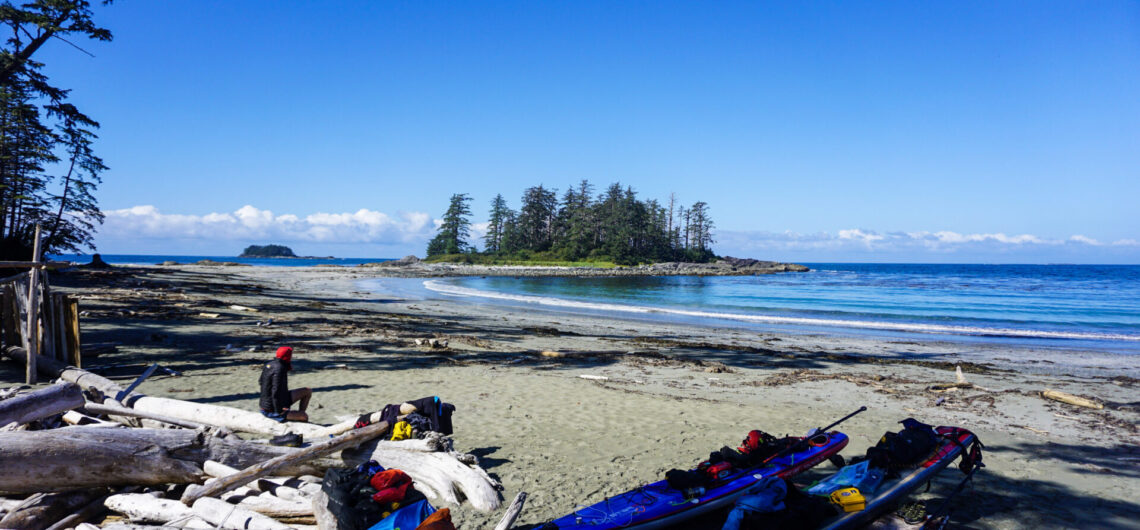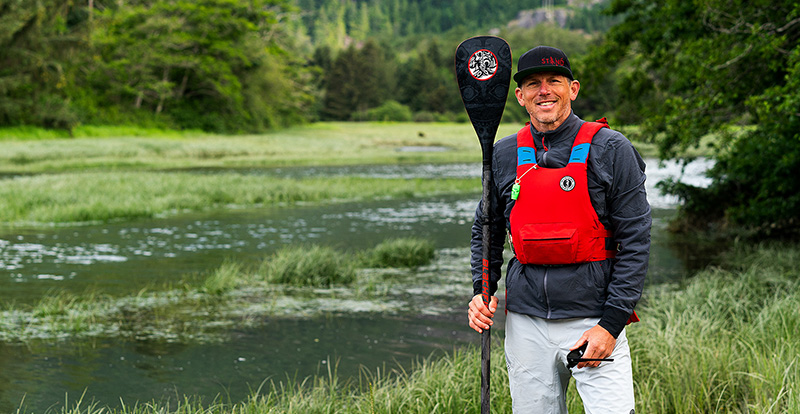Dream Big
There is nothing like sitting around a campfire chatting about the next big paddling trip you would like to do. Or maybe it’s pouring over charts and maps of your province, state or country with coffee in hand writing out your bucket list. Whether it’s oceans, rivers or lakes, at the end of the day it’s great to set a paddling goal. I read once that you are 42 percent more likely to achieve your goals if you write them down. Writing your goals down not only forces you to get clear on what, exactly, it is that you want to accomplish, but doing so can motivate you to complete the tasks necessary for your success. Tasks can range from planning out that menu, to the hours required to organize and pack your paddling & camping gear. And keep in mind that when you’re paddling into a stiff headwind or you are being devoured by mosquitoes while setting up your tent in Northern Ontario is it always good to have that overarching goal moving you forward.

Share Your Experience
No I am not talking about Instagram and although I do love solo paddling time I also enjoy sharing my wilderness experience with a good partner. Finding someone can be a challenge as you search for those expedition partners who share your values, fitness level, expectations and experience. In decision making models we call it the human factor and they need to be someone you can trust and that you enjoy spending time with in the outdoors. Good partners not only support and motivate one another on the long days but they can keep you accountable, share decision making responsibility, and most importantly provide a valuable safety net on the more dynamic trips. At the end of a long paddling day it sure does feel good to share some stories, a nip of scotch and a few laughs with those partners around the campfire.

Travel Light, Travel Fast, Travel Far
One thing I am really conscious of when it comes to my gear list is making sure I am traveling light. Unlike sea kayaking where you can bring much more into the field with you and the gear is put into covered, weather efficient hatches, it is important to get your kit as stream lined as possible to conserve the energy while moving towards your goal. I am not one of those guys who saws his toothbrush in half to save weight but with all of the incredible gear on the market it is easy to go light and small, especially with sleeping bags, pads, tents and cooking gear. Using good light, carbon fiber paddle with a smaller blade size like the Blackfish Salish 500 really helps in moving heavier, fully loaded touring boards and makes a big difference on how your body feels at the end of the day. Experience will hone your paddling kit, leaving behind the extras and bringing only what’s needed.

Level Up
My number one recommendation when people ask me about getting into touring and multi day expeditions is to take a good flatwater skills course. Developing a strong and technical forward stroke will really make the difference covering larger distances on your paddleboard or punching into a headwind. If you already have some basic skills then taking an advanced skills or touring course can really fast track your skill set and experience. Search out those great instructors and coaches in your area and see if you can line up a lesson. Another recommendation is once you have the skill set you should get out for some consistent and focused paddle training at least three times per week where you can build up your strength and endurance. Training paddles should include fully loaded boards to simulate those long days on expedition.

Plan & Reflect
Ever since I started guiding over twenty years ago I have been using Rite in the Rain journals. I have all of my trips and training courses recorded. You can use these journals to plan out your trip, recording important information about weather, daily route plans, tides and currents. But you can also use the journals to record wildlife encounters and things not to forget or to bring along next time. I usually like to sit down by the fire at the end of the day to record my thoughts, special points of interest and moments of gratitude from the days events. Rereading your journals can take you right back to the sights, sounds and emotions felt at the moment.





Comments